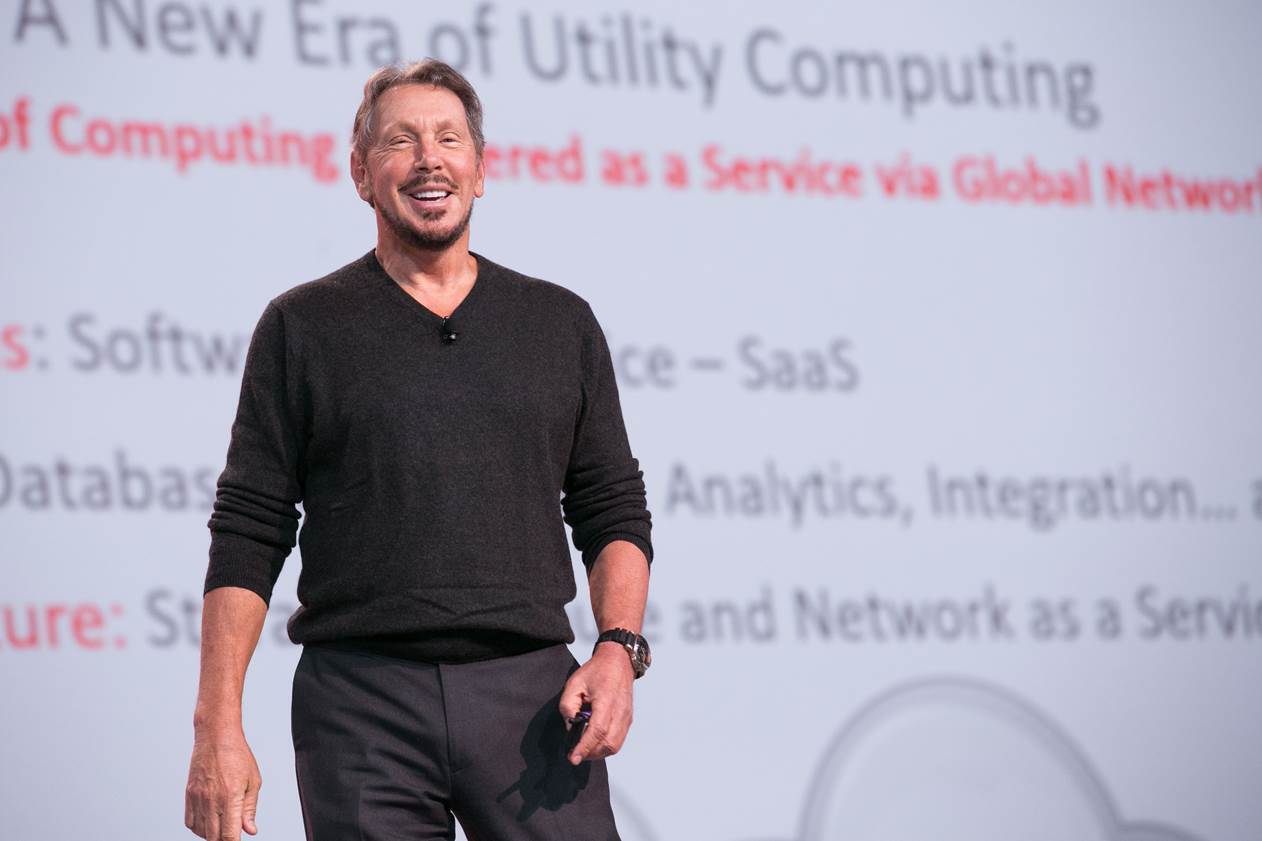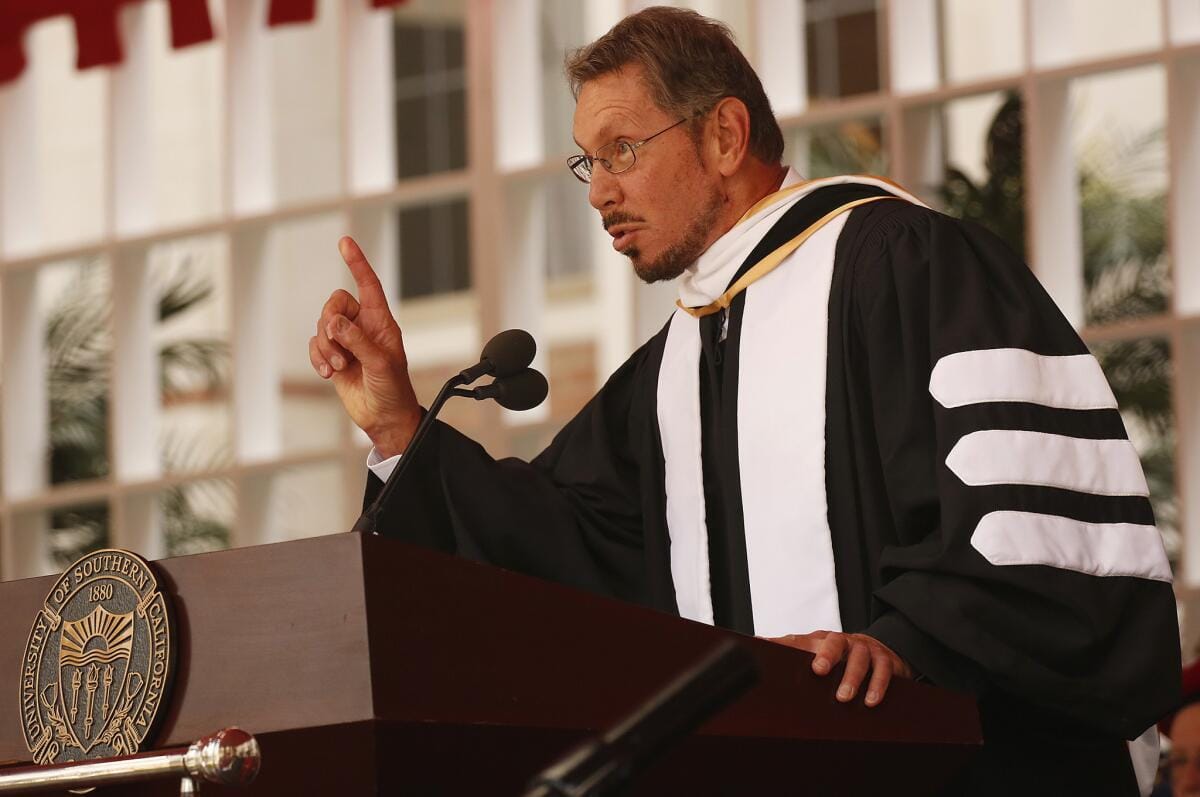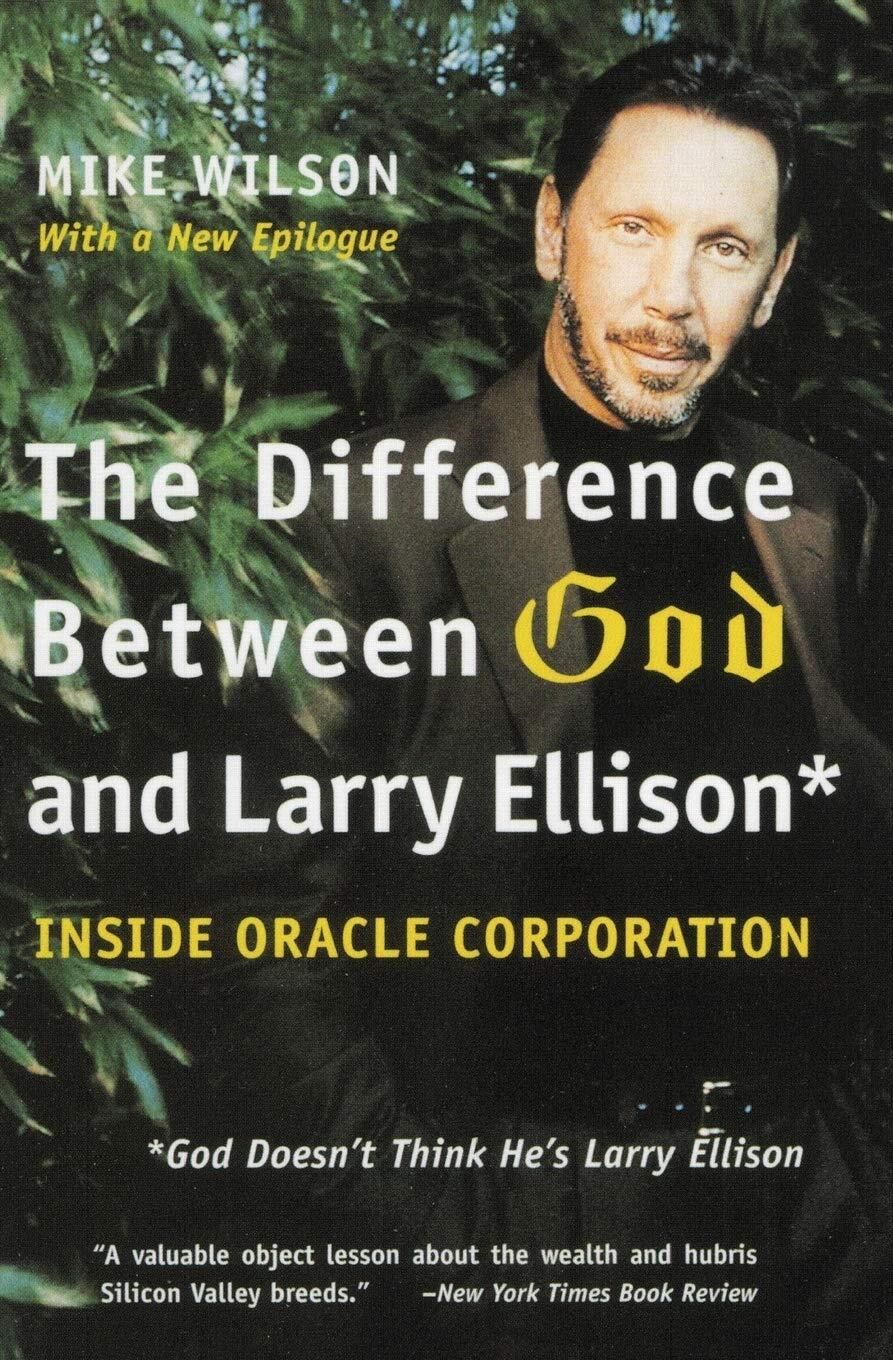- The Weekly Mensch
- Posts
- The Weekly Mensch: Larry Ellison
The Weekly Mensch: Larry Ellison
A bold vision on entrepreneurship nurtured by spark, passion, and grounded Chutzpah
Us in a Nutshell
We are passionate about the lives, the impact, and the experience of Jewish baby boomers who have changed our world. From finance to the arts, we write about the stories of contemporary heroes who — significantly and meaningfully — changed the face of their respective industries, often starting with nothing but a legacy of exile. We tell their stories for the timeless lessons of intelligence, ethics, and resilience they underline. And we also share some fun anecdotes! Nathan Tob is a fourth-year student at the Queen Mary University of London. He studies Economics, Finance, and Management. Davy Sokolski is a third-year student at Columbia University in New York. He studies International Political Economy.
What is a Mensch?
Leo Rosten defines mensch as “someone to admire and emulate, someone of noble character.” Dr. Saul Levine writes in Psychology Today that a mensch’s personality characteristics include decency, wisdom, kindness, honesty, trustworthiness, respect, benevolence, compassion, and altruism.
Larry’s Rapid Bio

Credit: ITPro
Lawrence Joseph Ellison, born on August 17, 1944, in New York City, grew up in a modest Jewish household on Chicago’s South Side. Raised by his aunt and uncle, Lillian and Louis Ellison, after his mother entrusted him to their care at nine months, Ellison’s early years were shaped by resilience, independence, and a drive to defy expectations. His adoptive father often dismissed his ambitions, calling him a dreamer, but these early challenges fueled Ellison’s determination to succeed. Despite excelling in math and science, he dropped out of the University of Illinois Urbana-Champaign after his adoptive mother’s death and briefly attended the University of Chicago, where he first encountered computer programming—a field that would define his future.
In 1977 Ellison co-founded Software Development Laboratories with Robert Miner and Ed Oates, investing just $1,200. Renamed Oracle Corporation in 1982, the company revolutionized enterprise software by developing relational database systems, a groundbreaking innovation that became a cornerstone of modern business technology. Under Ellison’s leadership as CEO until 2014, Oracle grew into a global tech giant, driving innovation in cloud computing and enterprise solutions. Known for his bold vision and aggressive acquisition strategy, Ellison positioned Oracle as a leader in the tech industry.
Ellison is also a passionate philanthropist. He founded the Ellison Medical Foundation to fund research on aging and pledged the majority of his wealth to charitable causes through the Giving Pledge. His philanthropy includes significant donations to global health, education, and disaster relief efforts. A strong supporter of Israel, Ellison has donated millions to Israeli medical and defense projects, including hospitals and advanced military technology, underscoring his commitment to causes that align with his values.
In 2012, he purchased 98% of the Hawaiian island of Lanai, aiming to develop a sustainable community powered by renewable energy and eco-tourism. Ellison’s life reflects a love of adventure and excellence beyond the boardroom. An avid sailor, he won the America’s Cup in 2010 with his team, BMW Oracle Racing. He is also a dedicated supporter of tennis, owning the Indian Wells Tennis Garden and promoting the sport globally. Known for his larger-than-life personality and visionary mindset, Ellison’s legacy is a testament to the power of resilience, innovation, and an unrelenting drive to redefine what’s possible in business and beyond.
Larry’s Five Lessons
1. Free yourself from the expectations of others
Larry grew up in a middle-class Jewish family where the climax of success was the pursuit of medical studies. For his entire early life, Larry had been convinced that medicine was his dream and the expectations his family had for him ended up becoming his actual aspiration. Larry Started as a pre-med college student, however, he soon realized that he simply and blatantly did not like it, so he dropped out. Later, as he moved to California, he found a spark for the beauty of nature and the grandeur of the mountains in the Sierra Nevada and became a tour guide, spending his days sharing his appreciation for the magnificence of the mountains with visitors and tourists. At the same time, he learned coding and realized he was good at it. But Larry’s aspirations were not enough for his wife who got a divorce after he told her he wanted to buy a sailing boat. For Larry, his divorce was “a moment when [he] felt relieved.” He could pursue his curiosity and spark, liberated from the weight of the expectations others imposed on him. This freedom is what– a few years later –led Ellison to found Oracle.
We are all the product of our close ones, families, friends, partners, and they come with hopes and aspirations. Ellison powerfully reminds us that these aspirations can be different than ours and call us to free ourselves from others’ wills. In families marked by tragic history (such as those who survived the Holocaust), the transmission of aspirations for security through success is recurring but Ellison demonstrates how success only happens through getting rid of outside noise, leaving room for our most inner sense of purpose.
2. Adaptation is the core of longevity
Larry Ellison’s ability to adapt has been key to Oracle’s survival and growth in an ever-changing tech landscape. One defining moment came in the early 2010s when cloud computing began to dominate the industry. At the time, Oracle was heavily invested in on-premises database systems, and competitors like Amazon Web Services and Salesforce were already far ahead in the cloud market. Many believed Oracle couldn't compete in this new era. But Larry, true to his forward-thinking nature, refused to let Oracle become obsolete. He redirected massive resources into cloud infrastructure and software, launching Oracle Cloud and leveraging Oracle’s strengths in enterprise solutions. Though the pivot required significant investment and faced skepticism, it ensured Oracle’s relevance and growth in a rapidly shifting market. Reflecting on this, Larry said, “See things in the present, even if they are in the future.”
Longevity isn't about staying the same; it’s about evolving with purpose. Ellison’s story shows that success requires both the vision to foresee change and the courage to embrace it, even when it disrupts existing systems. Whether in business or personal growth, adaptability allows us to navigate challenges, seize new opportunities, and remain relevant in a world that’s constantly moving forward. True longevity is built on staying flexible while staying true to what makes you unique.
3. Three Rules: Location, location, and location
Growing up in a suburb of Chicago, Larry always felt attracted by California’s natural landscape which inspired him and moved West to start his college life. After dropping out, he developed strong capabilities in coding. For Larry, location was important, he wanted to be around like-minded people, those who loved coding and were the best at it. This aspiration led him to move to Silicon Valley as “it really was the name of the game for tech innovators.” Moving to the Valley inspired Larry to found Oracle, motivated him to tackle challenges that experts deemed impossible to solve, and enabled him to hire and lead “the best coders on earth.” Moving to the Valley also was the dawn of Larry’s most impactful encounter – Steve Jobs, who became his best friend (and who he later helped take over Apple Inc. – Ellison proposed to Jobs to borrow $5BN to buy the company so that he could name his friend CEO).
Larry’s strikingly successful journey was the result of successful moves, each as a bet on a specific location. Larry conducted his life based on the places he wanted to live in, be inspired by, meet, and work with the people. For Ellison, location was not a feature, it was a reason – and the rest came with it. As they say, there are three rules: Location, location, and location. This is as true in real estate as it is in life.
4. When people tell you you’re crazy, you just may be onto the biggest innovation in your life
In his commencement speech at the University of Southern California, Larry quoted Mark Twain’s infamous saying: “What’s an expert anyway? Just some guy from out of town.” This comment concluding a brilliant 22-minute address was not a disrespect of expertise, rather it was a bold and clear disrespect for the status quo. For Ellison, the status quo or the agreement of all on one specific matter is precisely what should be shattered to truly and profoundly innovate. When Larry started building Oracle, no one believed creating a rapid enough-to-be useful relationship database would ever be possible. As he shared his vision, people would react saying first he was arrogant, and next that he was crazy. But for Ellison, being called crazy is the sign that you may be sitting on the biggest innovation of your life (or as he said “that you are actually crazy”). It is no surprise that Ellison built a lifelong friendship with Jobs, who directed Apple’s 1997 Think Different ad campaign that concluded with the now anthem-like phrase: those who are crazy enough to change the world are the ones who do. Ellison once said: “The most important aspect of my personality as far as determining my success has been my questioning conventional wisdom, doubting experts, and questioning authority.”
Ellison– as many other Mensches in this newsletters –carried an affirmed Chutzpah, about which Leo Rosten wrote that means "presumption plus arrogance such as no other word, and no other language, can do justice to.” This sense of arrogance and grit is often required to challenge the status quo and lead innovation; Ellison exemplifies the call to action, self-confidence, and critical thinking, because only through these essential traits, can one innovate.
5. Align success with purposeful giving
Larry’s journey from a modest upbringing to one of the world’s wealthiest individuals has always been intertwined with his commitment to giving back in meaningful ways. His philanthropy extends across numerous areas, including medical research, education, and environmental sustainability, signing The Giving Pledge in 2010. One notable example is Ellison’s substantial donation to the development of Israel’s Iron Dome missile defense system, reflecting his deep appreciation for technological innovation that saves lives. Similarly, his contributions to Israeli hospitals and medical research exemplify the Jewish value of tzedakah, the obligation to give to those in need. Larry has dedicated billions through the Ellison Medical Foundation, which funds research on aging and age-related diseases and has supported global disaster relief and sustainable development projects, such as transforming the Hawaiian island of Lanai into a self-sufficient community.
Larry’s approach highlights that philanthropy isn't just about donating wealth; it’s about creating systemic change aligned with your values and strengths. For Larry, this meant leveraging his passion for innovation to support causes like cutting-edge medical research and sustainable development. Giving back is most impactful when it stems from what you know best, allowing your efforts to address problems with expertise and precision. Purposeful giving isn't just about generosity-it’s an extension of your unique potential to leave the world better than you found it.
The Quote of The Week
In a constantly changing world what is possible is a moving target.
More About Larry
Many have written books about Larry Ellison, but our favorite— and the one we highly recommend —is Mike Wilson’s biography: The Difference Between God and Larry Ellison: *God Doesn't Think He's Larry Ellison (2003).


Reply